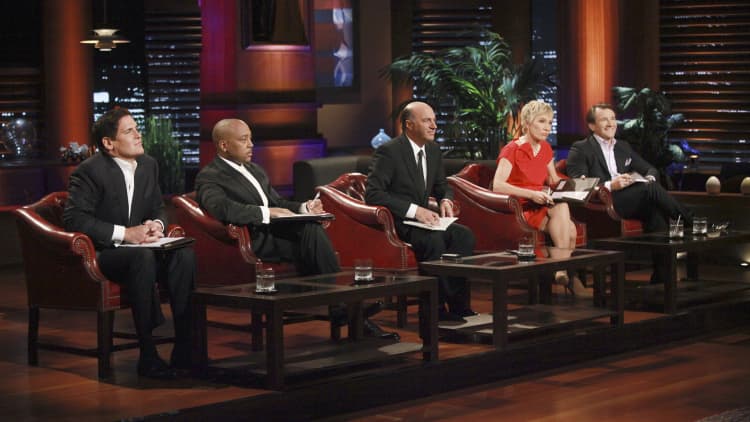Learning disabilities aren't a drawback in business or in life, says investor Barbara Corcoran. They can even be a plus.
"This is kind of a cause for me," Corcoran says on Sunday's episode of ABC's "Shark Tank." She has worked hard to make sure her dyslexia doesn't hold her back, and that's partly why she invested $50,000 for a 20 percent stake in Fidgetland, a company that sells products to help people stay focused. Founder Jason Burns has a learning disability, too, and initially he made the toys for himself.
"I love these ADD types, and half of them are real geniuses, if only you could find a good slot to put them in," Corcoran says in the episode. "My most productive people that I've worked with my whole life usually have some kind of a curve-ball in learning. And I seek them out."
Corcoran learned of her own disability when her son was diagnosed in the second grade, according to Entrepreneur. Corcoran says her 11-year-old daughter also has ADD.
"Everything I've ever done in life has been to prove that I'm not stupid," People reports Corcoran said. "I've been dyslexic my whole life. It definitely affects you."
Working through the disability made her better, she says.
"It made me more creative, more social and more competitive," Corcoran tells Entrepreneur. "There's a great freedom to being dyslexic … if you can avoid labeling yourself as a loser in a school system that measures people by A's and B's."
Now, as an investor, she looks to invest in others who have done the same.
"If I were to make a list of my top, say, seven or eight entrepreneurs I've invested in on 'Shark Tank,' I would say all but one have a learning disability," she says.
"It is a turn-on for me. I hear somebody has got a learning disability and they're my people, so to speak," she explains. "Probably because I was so terribly abused in school as the dumb kid."
Other sharks Daymond John and Kevin O'Leary also have learning disabilities.
Burns' story about his own challenges resonated with Corcoran.
"When I was in 11th grade I was diagnosed with ADD," Burns says on the episode. "The woman who diagnosed me said that my ADD was so severe that I would never be able to survive at a four-year university, and I shouldn't try to pursue a job that required any type of education."
With the help of a different doctor and the right prescription, Burns went on to graduate from the University of Arizona and land a job in the entertainment industry. But he still struggled with habits like bouncing his knees to burn off excess energy. In 2007, he decided to create an item to play with at work to stop bouncing and focus.
"I went and looked in the garage to see what we had," Burns says. "I took some bike chain, I took some key rings and put it together and that is how I made my first one."
Since founding the company, he has sold more than 50,000 products, bringing in just over $500,000.
Investor Robert Herjavec also made an offer, but Burns opted to take Corcoran's. Now, with her help, he hopes to continue to build the company.
"To get two offers on 'Shark Tank' is amazing," he says on the show. "This is the greatest day."
Like this story? Like CNBC Make It on Facebook!
Disclaimer: CNBC owns the exclusive off-network cable rights to "Shark Tank."



